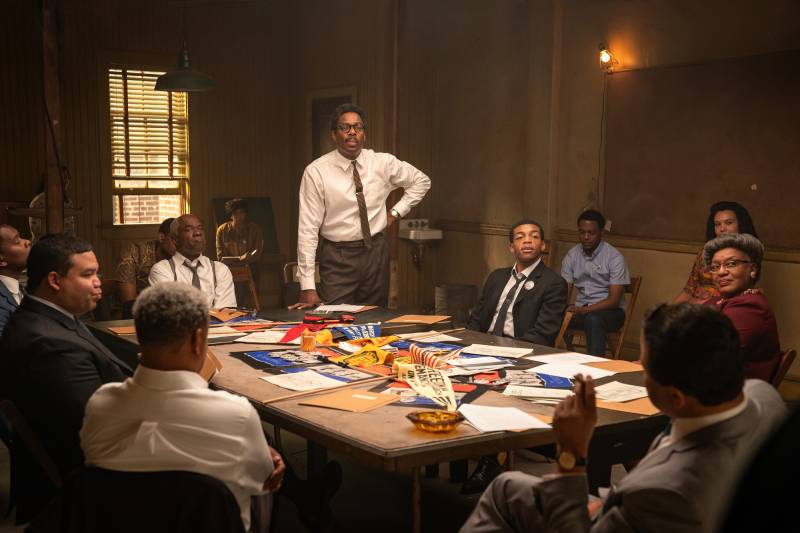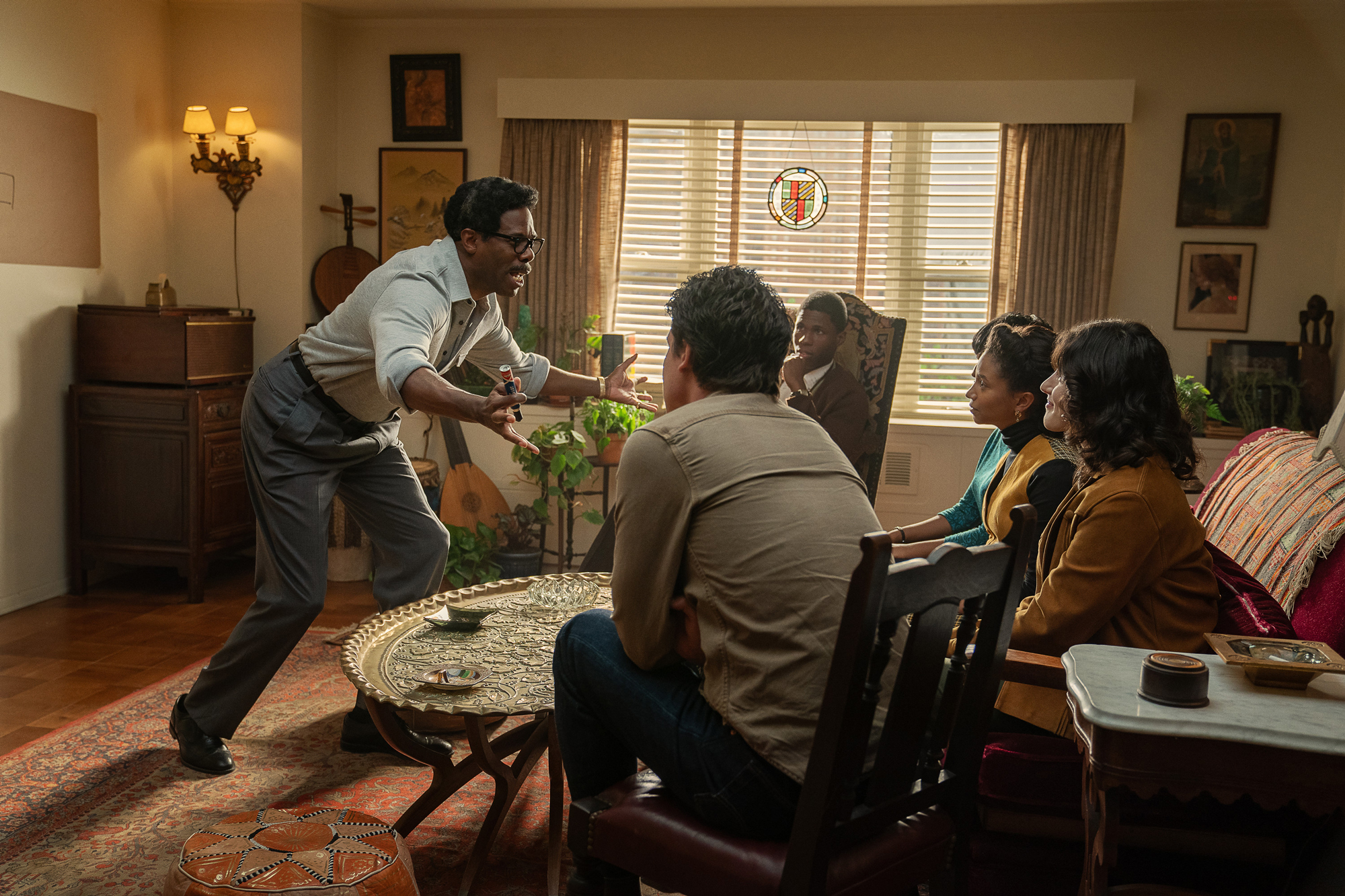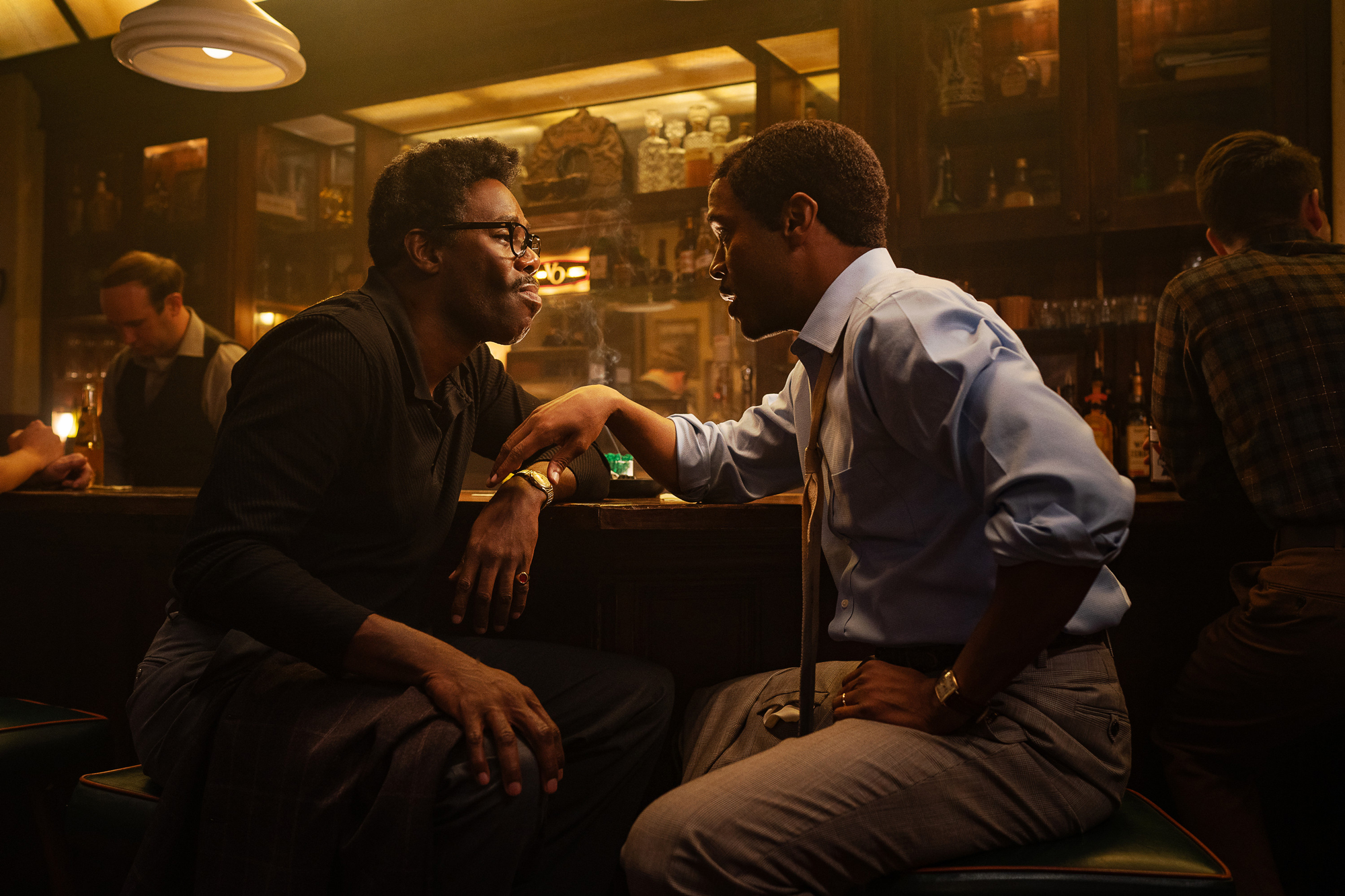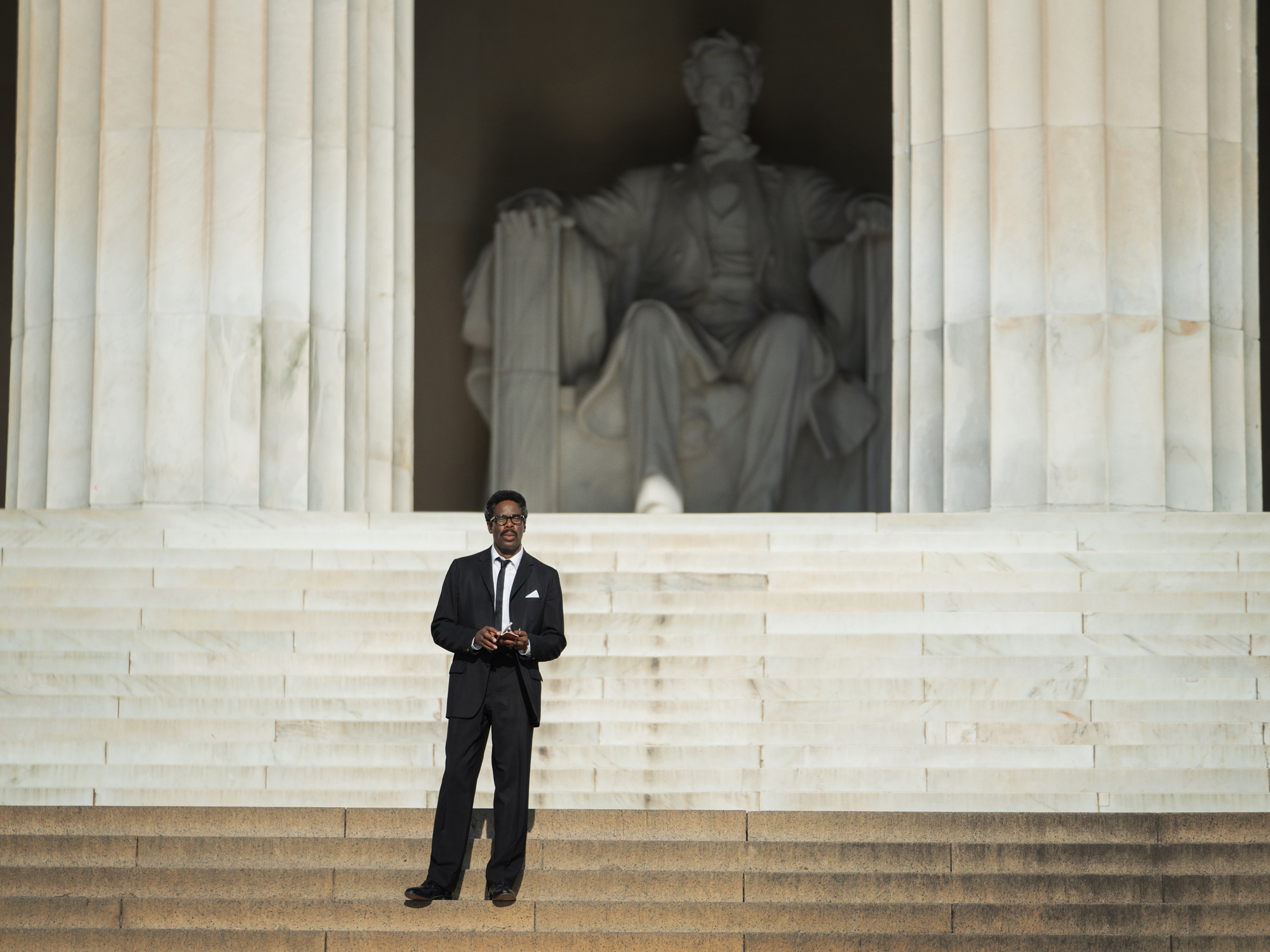The great unsung virtue of historical documentaries such as Brother Outsider: The Life of Bayard Rustin (2003), which premiered at Sundance 20 years ago and aired nationally on PBS,
is rescuing and preserving forgotten legacies. Rustin, the civil rights activist who masterminded the 1963 March on Washington for Jobs and Freedom but was pushed to the margins because of his homosexuality, belatedly received his close-up in East Bay filmmaker Nancy Kates’ bittersweet portrait.
Biopics are most moviegoers’ preferred mode of visual history, though: epic yet intimate dramas with an emotional climax, driven by a larger-than-life performance by a charismatic star. This is not a recent development, of course — Paul Muni did successive turns as Louis Pasteur, Emile Zola and Benito Juárez in the late 1930s.
Not incidentally, biopics certify heroes. I can’t imagine that Kates, or anyone else in 2003, would have predicted that Hollywood would ever make a feature film about Bayard Rustin. (Certainly not one with a budget to cover a small fleet of 1960s NYC buses, taxis and automobiles.) So let us celebrate George C. Wolfe’s rousing Rustin (opening Nov. 3 in theaters and debuting Nov. 17 on Netflix), which positions — or should I say mainstreams — Bayard Rustin as one of the boosters who rocketed the Civil Rights Movement to national influence.
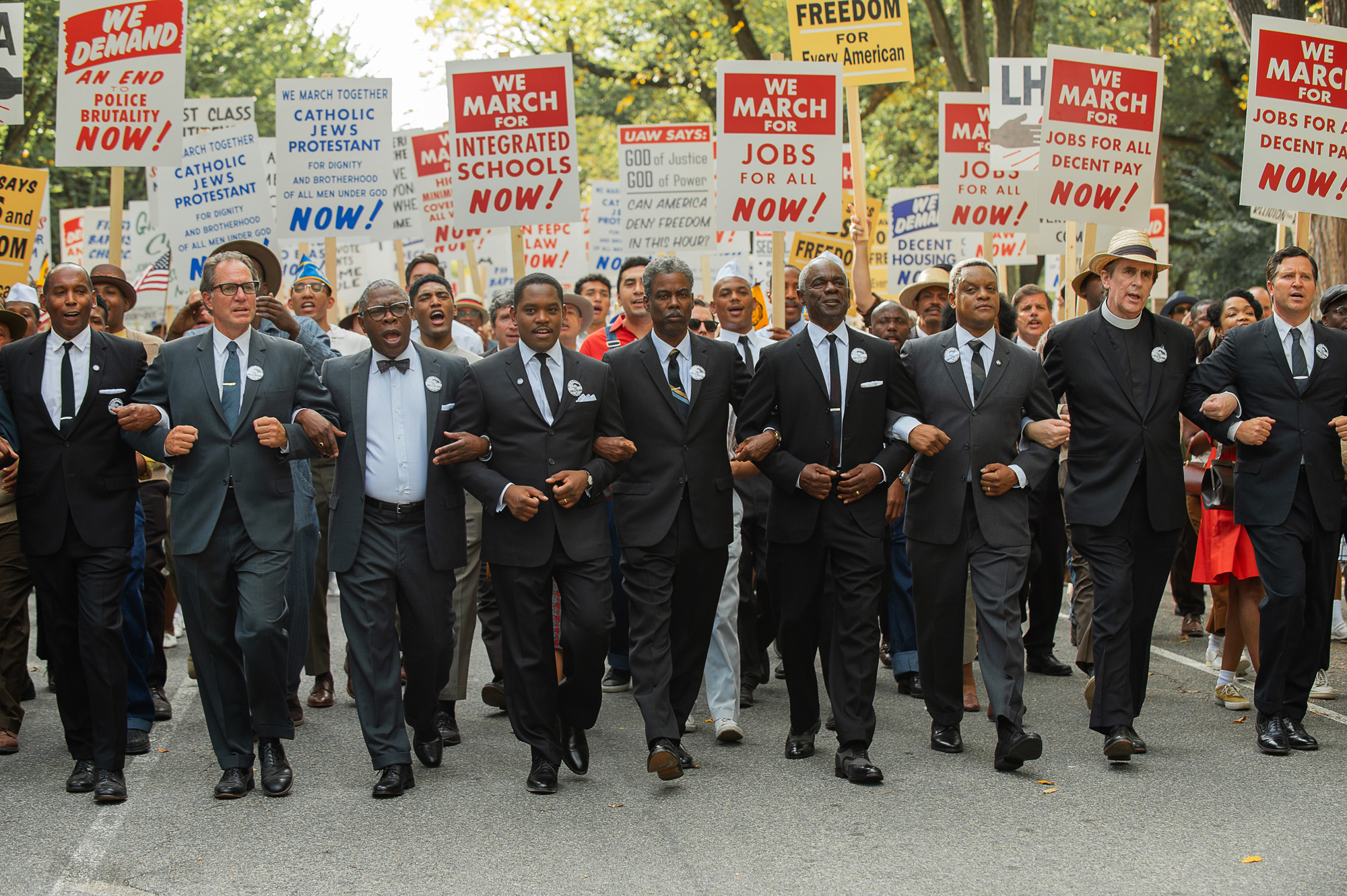
Wolfe’s pitch, presumably, invoked the 60th anniversary of the massive protest on the steps of the Lincoln Memorial that is best remembered today as Martin Luther King Jr.’s coming-out party. King (Ami Ameen) has a small role in Rustin — this is the activist’s show, after all, and it wouldn’t do for him to be upstaged, even by the event’s headliner — that paradoxically comprises the film’s weaker moments.
The supporting cast is highlighted by Jeffrey Wright’s deliciously villainous rendition of the silver-tongued, self-serving congressman Adam Clayton Powell Jr. Rustin’s prime antagonist, however, is cautious NAACP leader Roy Wilkins (a too-recognizable Chris Rock), perpetually concerned that FBI director J. Edgar Hoover (via the media) will use Rustin’s gay identity to discredit the movement.
